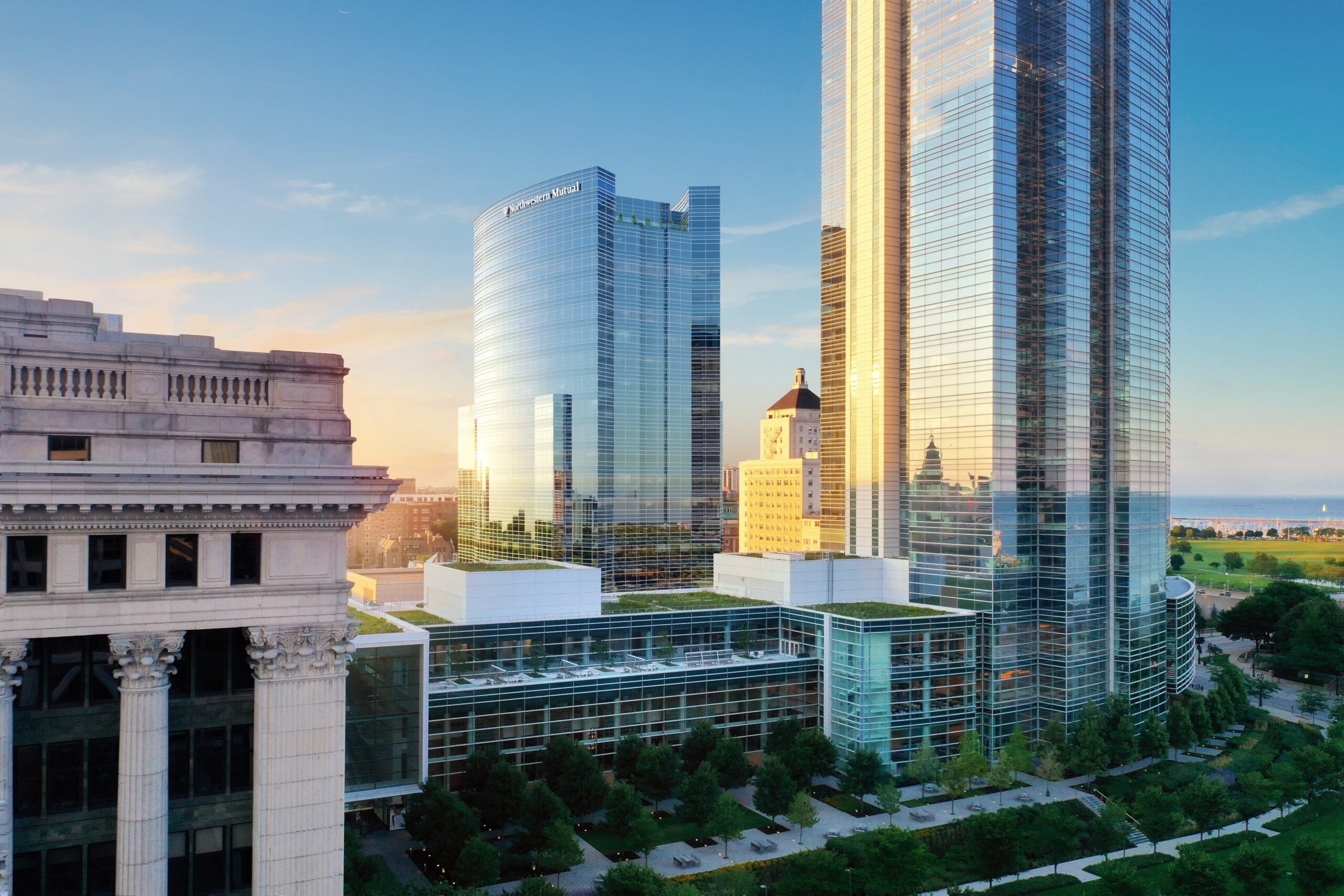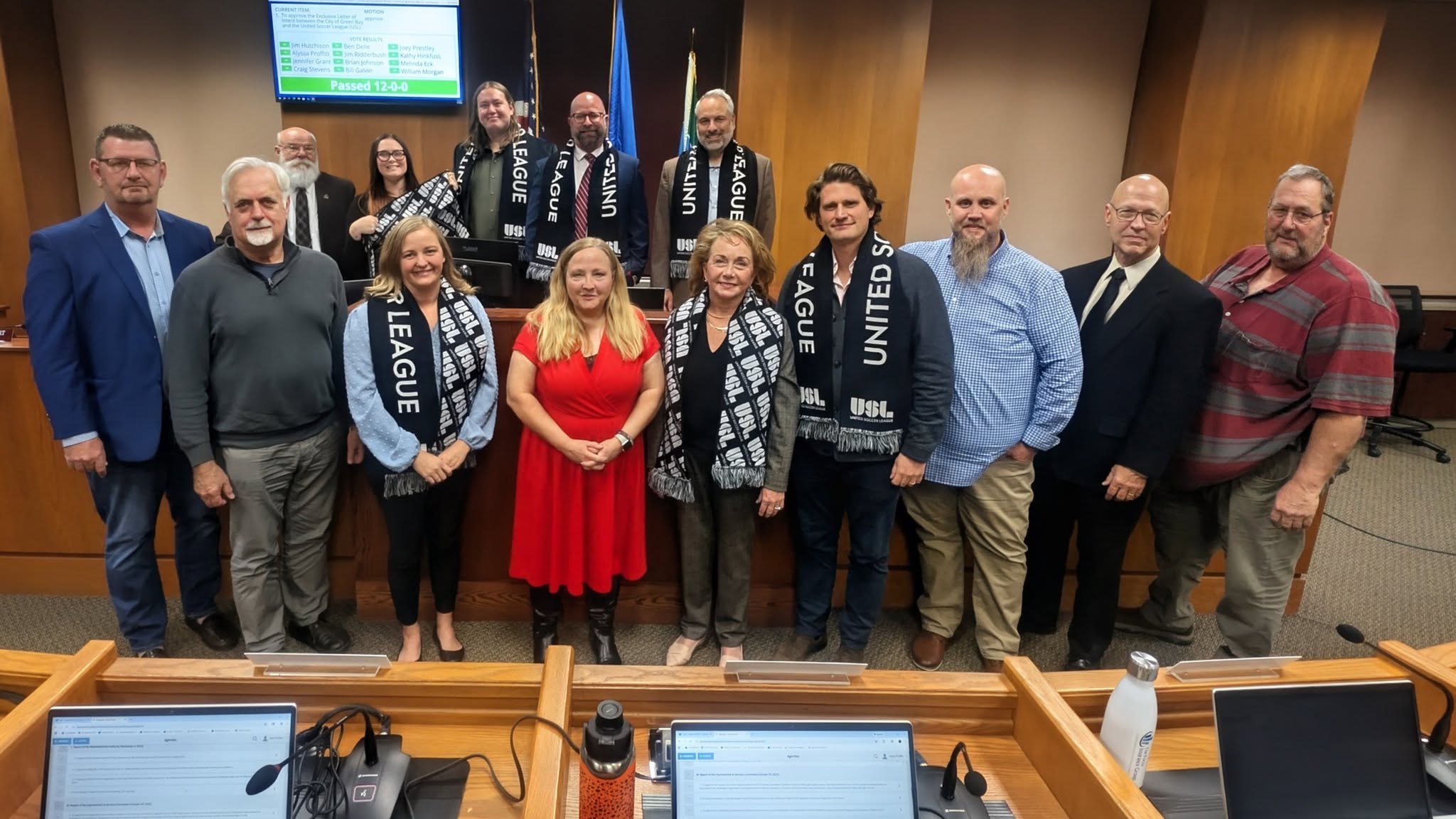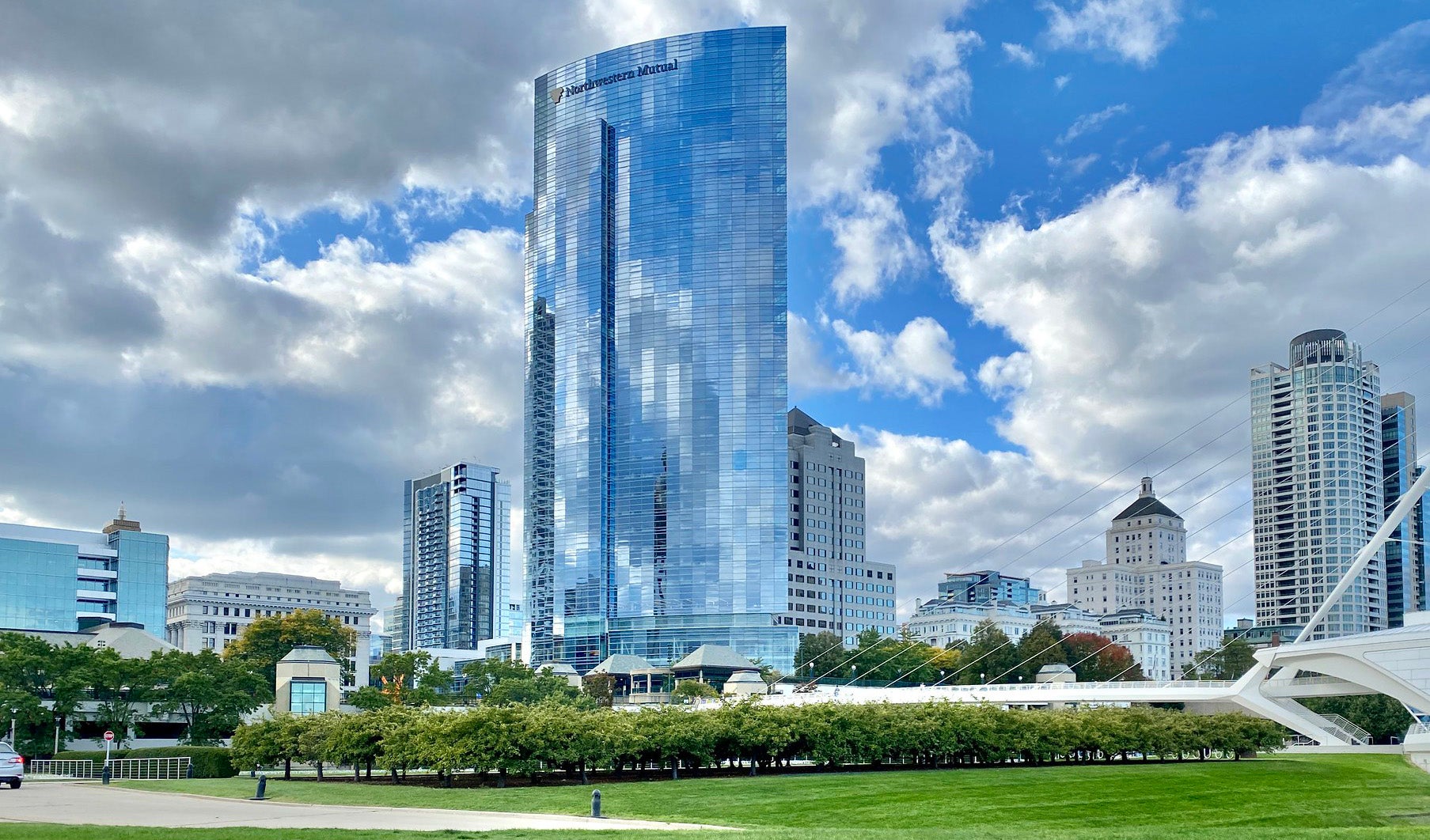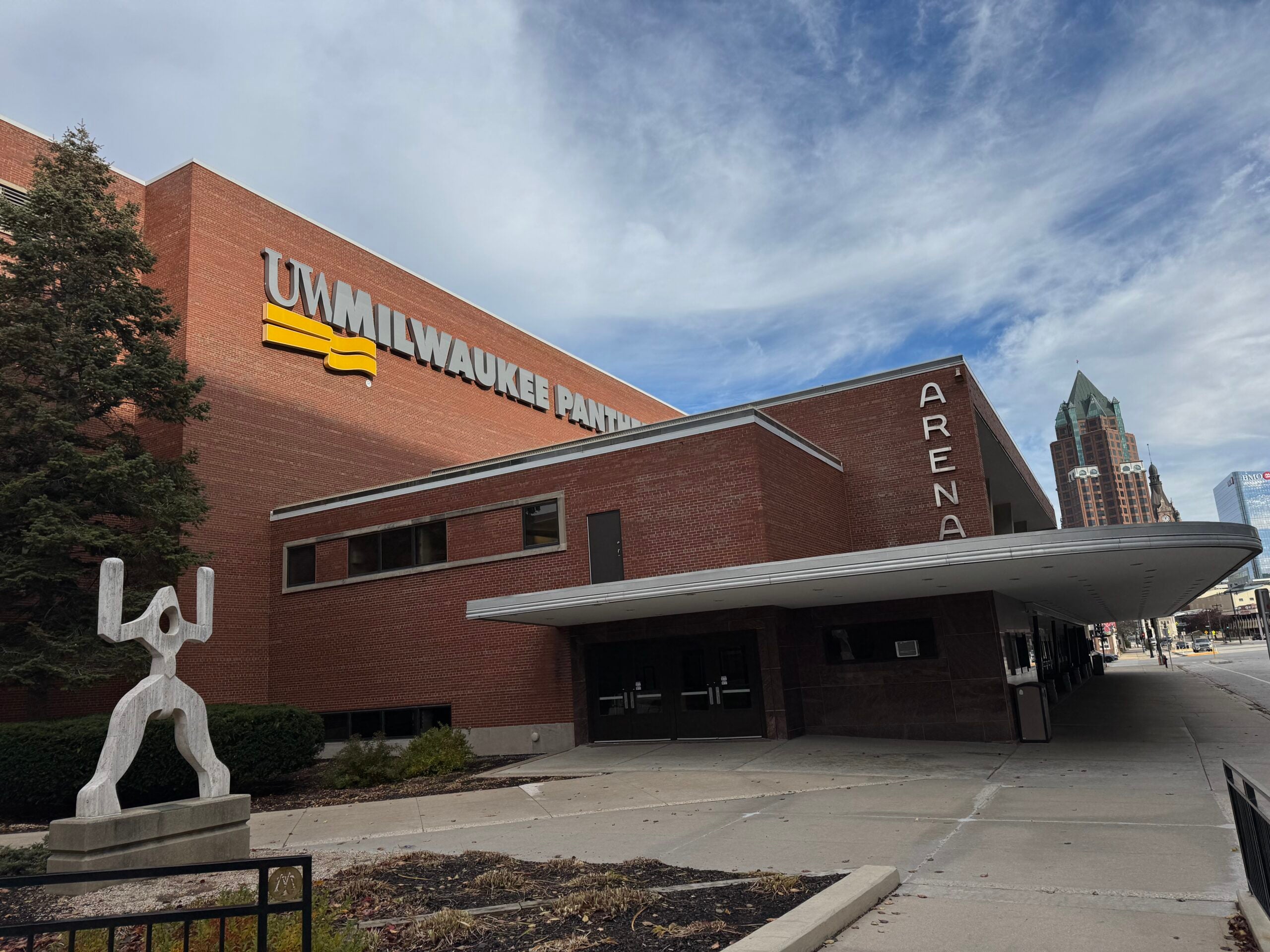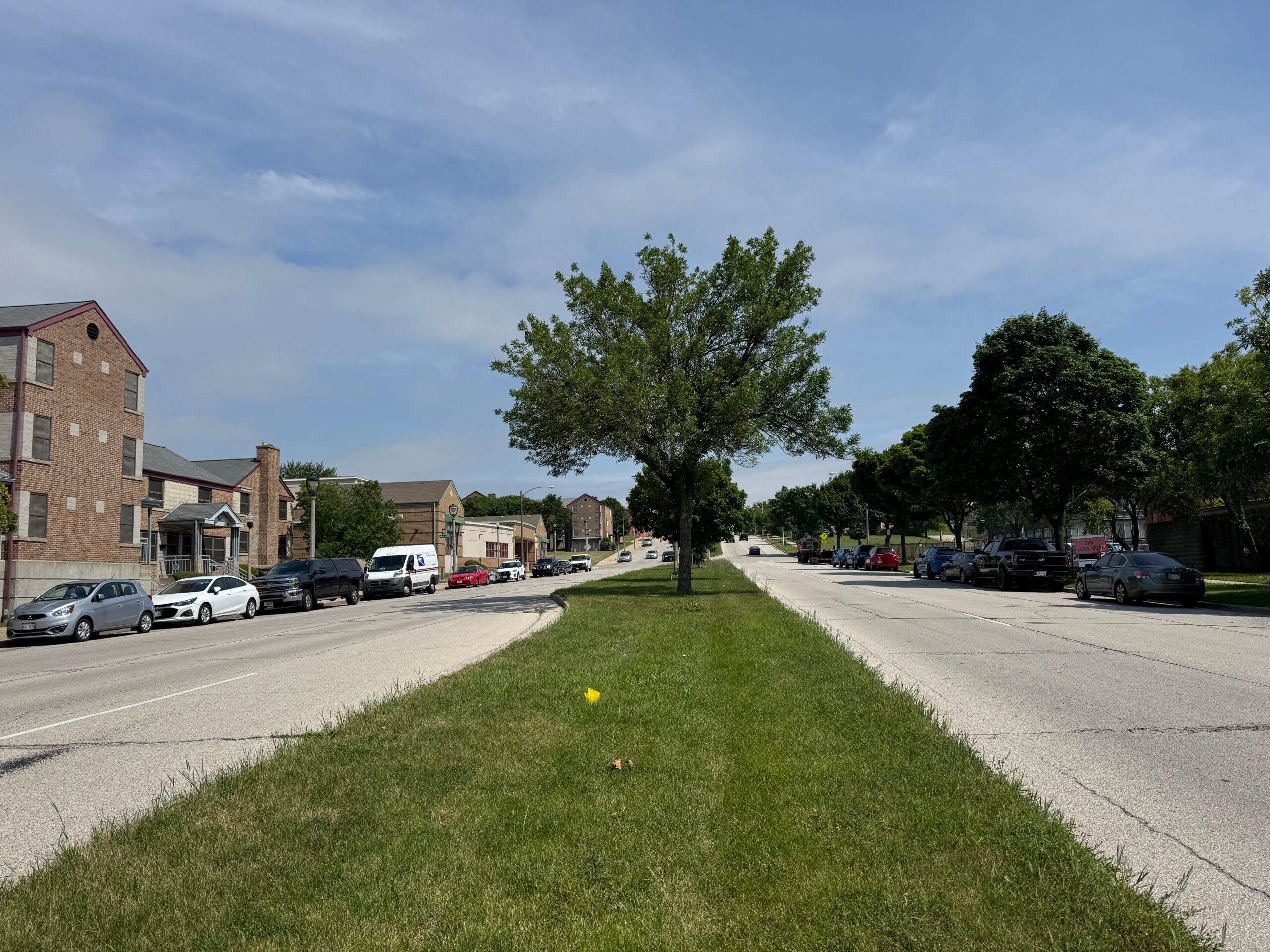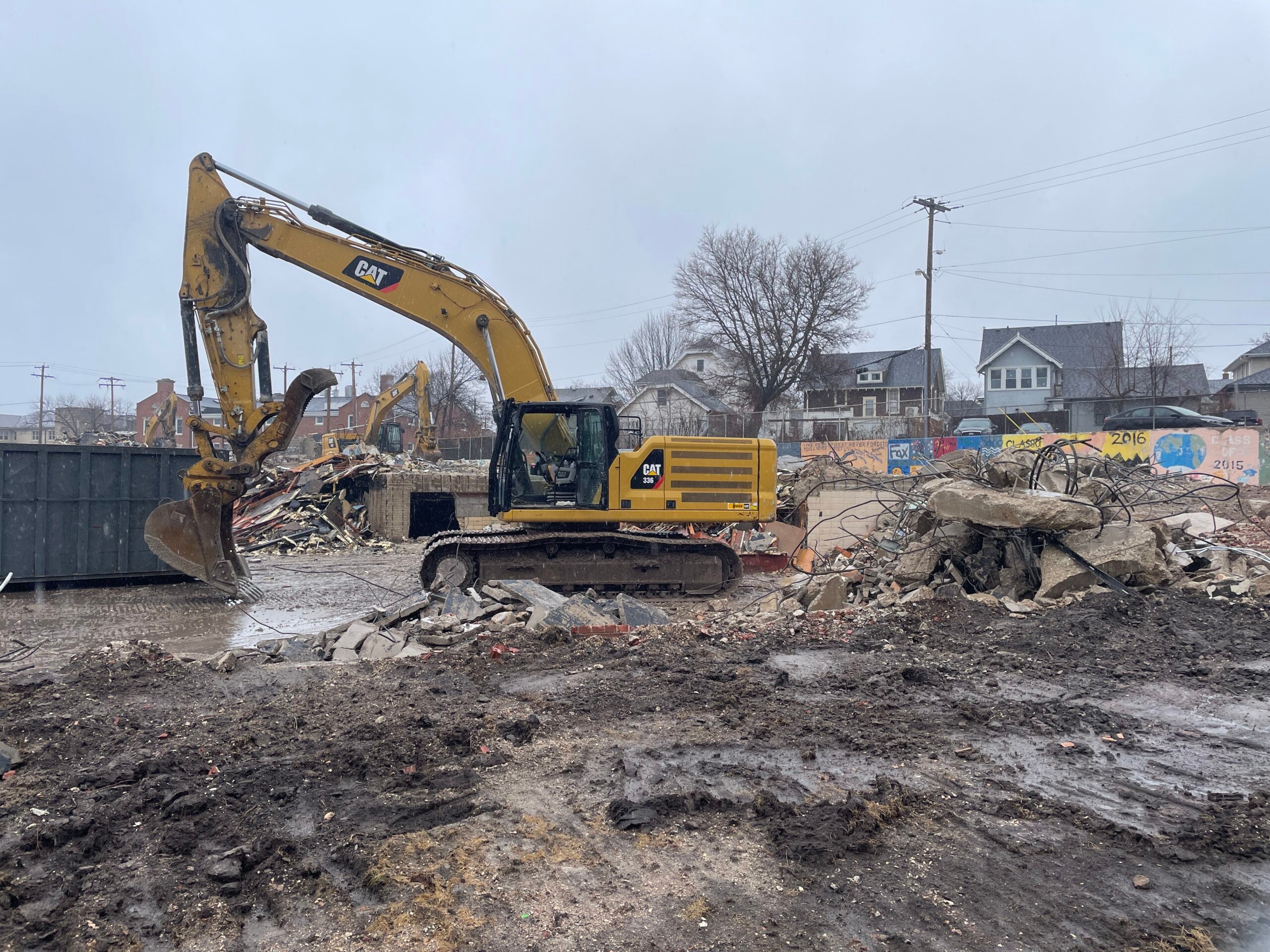At a time when many businesses across the nation are moving employees out of largely vacant office buildings, a $500 million plan by one of Wisconsin’s largest companies could be a sign of better things to come for the city of Milwaukee.
Northwestern Mutual announced a plan Thursday to move nearly 2,000 employees back to downtown Milwaukee in the next three to five years, redesigning an older building in the process. The 540,000-square-foot office tower will be located adjacent to and mirror the design of the 32-story Northwestern Mutual Tower and Commons, which opened in 2017.
“We are doubling down on our Milwaukee campus by investing in the future of the workplace for Northwestern Mutual and a thriving downtown community,” Northwestern Mutual chairperson, president and chief executive officer John Schlifske said in a statement.
News with a little more humanity
WPR’s “Wisconsin Today” newsletter keeps you connected to the state you love without feeling overwhelmed. No paywall. No agenda. No corporate filter.
Since the start of the COVID-19 pandemic, many jobs that were historically based in office have been done remotely. But Milwaukee has recently seen an uptick in companies creating new offices in the downtown area, or increasing their footprint there. That’s bringing more workers back to the city’s central hub and driving economic growth for the city.
Andy Hunt, the Vieth Director for the Center for Real Estate at Marquette University, said he believes the announcement is a huge win for Milwaukee.
“The signal from Northwestern Mutual is so huge that I think anybody would be silly … to think that they’re the last ones to announce a major move downtown,” Hunt said. “It’s coming.”
Hunt said a thriving economy in downtown Milwaukee reverberates throughout Wisconsin.
“These kind of things are wins for the entire state, when you have major employers committing to the major economic centers in the state,” Hunt said
In 10 of the largest U.S. cities, the average office occupancy rate was at 50 percent at the end of January, according to a report from Kastle Systems. In Milwaukee, that number is closer to 60 percent, according to a September survey of downtown employers.
Matt Dorner, economic development director for Milwaukee Downtown Business Improvement District 21, said the number of people returning to the office in downtown Milwaukee has increased in the last year. He argues the move by Northwestern Mutual proves that the “competitive advantages are unparalleled” in the city.
“This again showcases downtown as the premier location to do business and provide the best access to the strongest talent pool in Wisconsin,” Dorner said.
Milwaukee Alderman Robert Bauman, who represents downtown, said the added employees and redesigned building will benefit the whole community. Downtown Milwaukee represents about 24 percent of the city’s tax base, leading Bauman to call it the “economic engine” for the city.
“The property taxes generated by downtown real estate support all the other services that are provided throughout the neighborhoods of the city, and some neighborhoods which have a very, very diminishing tax base and diminishing property values,” Bauman said.
The Northwestern Mutual plan is one of a series of announcement from business either opening new offices, or expanding their footprint in downtown Milwaukee, including Kohl’s, SoftwareONE, Miller Electric Mfg, the American Heart Association, CBRE Group, Inc. and Potawatomi Business Development Corp.
Fiserv, Inc. announced in October plans to open its new state-of-the-art corporate headquarters in downtown Milwaukee, aiming to add 250 jobs there over five years. Milwaukee Tool also started moving 400 employees into its new offices downtown, according to the Milwaukee Business Journal.
The Wisconsin Center is moving forward with construction for its expansion, which will add space for meeting rooms, kitchens and parking at the center. The popular 3rd St. Market Hall also opened in 2022. The food hall is located in the heart of downtown Milwaukee and includes space for several food vendors and businesses.
Bauman is encouraged by the recent growth of the downtown area.
“Density benefits everybody,” Bauman said. “The more density you have in a given area, it better supports retail, it better supports hospitality, it better supports residential, it better supports public transit, which is a big component of a dense, urban environment.”
“The more we can pack people into the downtown area — whether they be residents, workers, visitors — it benefits everybody,” he said.
Milwaukee Mayor Cavalier Johnson is hopeful the move made by Northwestern Mutual will lead to continued growth.
“They have a national and probably global presence and could have made the decision to go anywhere they wanted to, but they decided to double down on their investment in Milwaukee with an additional half billion dollar investment,” Johnson said. “That’s very, very promising about where we’re going, about their belief and my vision for density and job creation in the City of Milwaukee.”
Pending city approval, construction could begin as early as fall 2023, with potential occupancy in 2027.
Wisconsin Public Radio, © Copyright 2025, Board of Regents of the University of Wisconsin System and Wisconsin Educational Communications Board.

